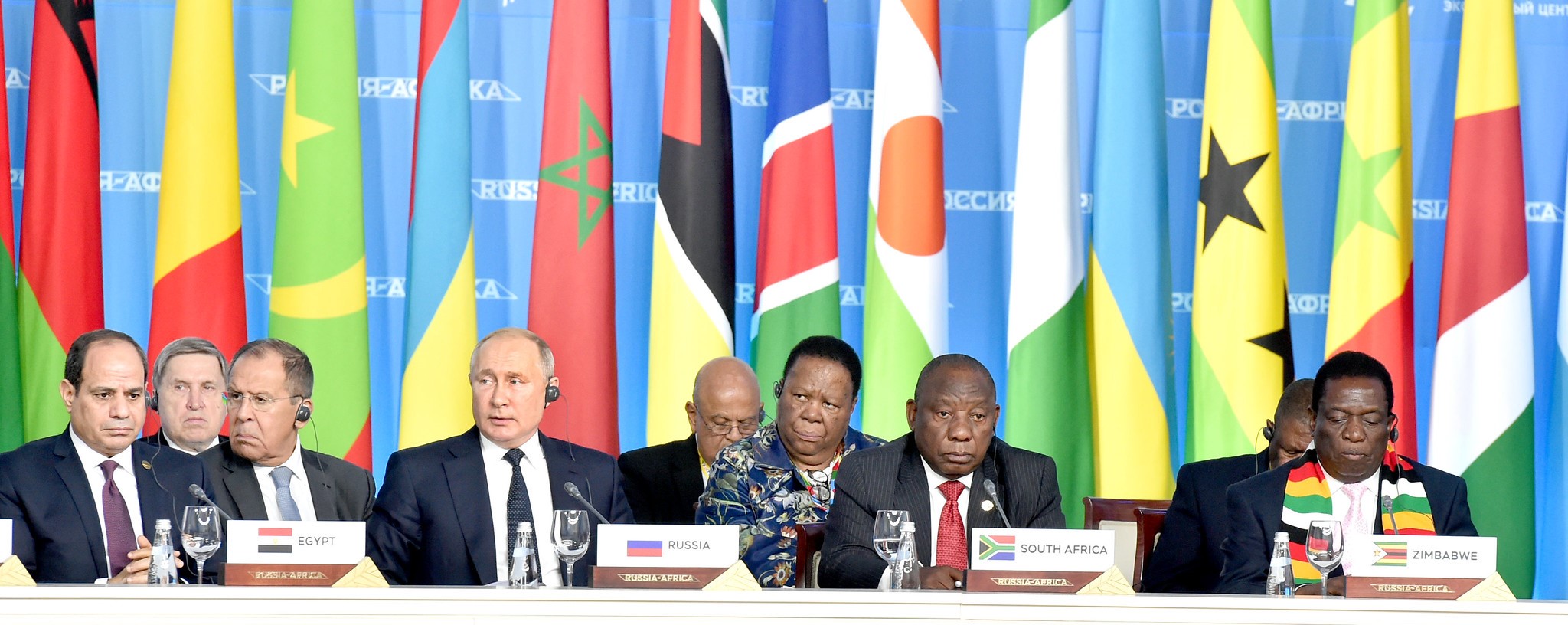Elliott Green analyses the recipe for Botswana’s political and economic success in the fifty years since independence.
Friday September 30 2016 marks the 50th anniversary since Botswana gained independence from the UK in 1966. Normally such an occasion for a country with only two million inhabitants would merit a few lines at best. However, what makes Botswana of particular interest is its unusual history of economic growth and development, which saw it achieve the highest GDP per capita growth rate in the world in the quarter-century between 1966 and 1991, at 7.8 per cent per year. Thanks to the discovery of diamonds in the late 1960s, the Botswanan economy has seen largely constant positive levels of economic growth since independence (with the exception of the 2008 financial crisis), as seen below. Moreover, this economic success has been paralleled by political success, inasmuch as Botswana has some of the highest press freedom and lowest levels of corruption in Africa and has maintained a multi-party democracy since independence.
Diamonds alone, however, cannot explain Botswana’s success. Other developing countries like Angola, Colombia, Myanmar and Zimbabwe have rich supplies of gemstones that, far from bringing development, have instead contributed to conflict, corruption, instability and underdevelopment. Elsewhere the development of other natural resources, especially oil, have largely not brought benefits to most citizens, such that the resources are more a curse than a benefit. In other words, not only is Botswana’s success unparalleled within Africa, which saw large amounts of economic decline and violent conflict during the same period when Botswana’s economy was growing so fast, but it is also highly unusual for resource-rich countries anywhere in the developing world.
So how did Botswana manage to avoid the natural resource curse? There is great debate about this question among scholars, who have posed several potential answers to this question. The economists Daron Acemoglu, Simon Johnson and James Robinson have famously argued that there is a combination of factors that explain Botswana’s success, including a history of relatively democratic tribal institutions, a relatively light effect of British colonialism, a number of good political leaders and a high degree of rural political power. Let us take these four in turn, in order of plausibility.
The first argument relies on the idea that, due in part to its low population densities, pre-colonial Botswana had inclusive political institutions inasmuch as commoners that were dissatisfied with their chiefs could leave them and start a new ranch or farm elsewhere, and these political institutions have persisted to the present day. While true to a point, this argument does not, however, account for the fact that the same logic applied across most of pre-colonial Africa, without the same positive legacy in the post-colonial period.
The second argument is that colonialism in Botswana was light and therefore allowed for the continuity of indigenous institutions from the pre-colonial era into the post-colonial period. Here again, however, the evidence is mixed: not only did the British divide Tswana-speakers across three countries (Botswana plus Namibia and South Africa, which actually has the highest population of Tswana speakers of all three countries), but the British fixed internal tribal boundaries and promoted some chiefs among others.
Good leaders comprise the third argument for Botswana’s success, with a special focus on Botswana’s first President, Seretse Khama. Khama, who was the chief of the Bangwato tribe, famously did two things with a positive legacy for Botswana as a whole. First, he demonstrated bravery by standing up to the British colonial authorities. While living in London in the 1940s, Khama met and married a white British woman – a decision which led to his exile from Botswana (then Bechuanaland) in the 1950s due to British fears about how an interracial marriage could damage its relations with neighbouring apartheid South Africa. The courage demonstrated by Khama, who was only allowed back after five years in exile after he renounced his tribal throne, gave him huge respect within Botswana and led to a strong post-independence mandate for him and his ruling Botswana Democratic Party. Second, when diamonds were discovered in his own clan land, he chose not to claim the diamonds for his tribe but instead made the diamonds the property of the state, thereby avoiding tribal conflict that has plagued so many other African countries.

There is some truth to Khama’s excellent leadership qualities, and arguably he deserves much greater recognition than other post-colonial rulers whose political and economic legacies are much more mixed, such as Kwame Nkrumah and Julius Nyerere. But the flaws of relying upon a Great Man Theory of history are widely known, not the least because Botswana’s subsequent leaders have not been as renowned as Khama but have done little to halt the country’s economic growth.
The fourth and last argument for Botswana’s exceptional growth is its high level of political dominance by the rural elite. More specifically, the biggest problem with politics in most poor countries is that people join politics in order to become rich, leading not only to huge corruption while in office but an unwillingness to leave office for fear of both losing access to state resources and being prosecuted after stepping down. In Botswana, however, a large number of politicians are independently wealthy through their ownership of cattle, which has meant that they could both utilise diamond revenue for public services rather than for their own self-enrichment, and they could afford to lose elections without losing their wealth. Moreover, due to the reliance of cattle ranchers on export revenues, the government of Botswana had a strong interest in avoiding an overvalued currency and therefore has maintained much better macroeconomic policies than other natural-resource rich countries. In other words, it is the potent combination of both private wealth in cattle and public wealth in diamonds which can explain Botswana’s economic and political success.
Botswana’s success has not, however, been without one major caveat, namely HIV/AIDS. Something like 25 per cent of all adult Botswanans are HIV positive, or second-highest in the world after Swaziland. It is for this reason alone that Botswana’s economic growth started to slow in the 1990s, to the point where its GDP/capita growth between 1991 and 2006 was only 2.0%. Yet it is hard to say how much Botswana’s politicians should shoulder of the blame for the rise of HIV/AIDS. On the one hand, its HIV/AIDS policies have come in for some criticism compared to other African countries like Uganda; on the other, however, there is strong reason to believe that Botswana’s prevalence rates have little to do with government policy and much more to do with its reliance on export-led growth and mining, which have more generally been shown to lead to high HIV/AIDS rates. Moreover, it is hard to square the argument that Botswana’s HIV policies are poor with the fact that its public health system is otherwise excellent: it has done an admirable job at eliminating or sharply reducing such diseases as bilharzia, cholera, malaria, measles and tetanus, and was more pro-active about banning cigarette smoking from public spaces than many countries in the western world.
As regards the next 50 years, it is hard to say what the future holds for Botswana. The biggest concern is the decline in diamond revenues, both because of the rise of other producers – Russia overtook Botswana as the largest diamond producing country in 2014 – and an absolute decline in diamond production in Botswana, which will start to run out in 15 years or so. The government’s long-term investment in infrastructure and education could increasingly benefit the country’s economy in decades to come, as seen by the decision of DeBeers to relocate its international sales department and its annual $6 billion trade to Botswana in 2012. Certainly job creation will have to be prioritised if Botswana is to tackle its high levels of unemployment and income inequality, both endemic to southern Africa in general. But perhaps most importantly, the country will need to continue to maintain its democratic credentials, especially at a time when democracy is so contested in neighbouring states like South Africa and Zimbabwe.
Elliott Green is an Associate Professor in Development Studies at LSE.
The views expressed in this post are those of the authors and in no way reflect those of the Africa at LSE blog or the London School of Economics and Political Science.







With the highest credit rating in Africa comes under leverage and a resulting Sub_Par economic growth, in a cycle which may well define a number of African countries’ economic and political positioning over the next century.
Long termism is critically important for Botswana at this junction.
This amazing country has been my surprisingly sweet home for the past 5 years now! And there’s nothing I want more than to see us rise on the African economic and political scene. For once, and better, in our history! This is important, for the next centuries, as this continent regains its global positioning.
Leveraging its financial soundness against other bi-deficit economies will be a key determinant.
Hence, bold measures such as building the right financial services platform and its underlying infrastructure, such that it can fiscally compete with jurisdictions such as Mauritius, attracting other African economies to fiscally set up shop in the country, may well bare its fruits.
Let’s us take our Global company taxes to 2% and African company taxes to 1% at the IFSC and note the impact. Freeing down the Botswana Pula would be the cherry on top.
Transformation has always been led by bold decisions. Well, Botswana may plausibly become a true disruptor in the region, post consensus with its SA/SSA comrades, and I wish this becomes a reality by Bots 75!
Amit Bakhirta